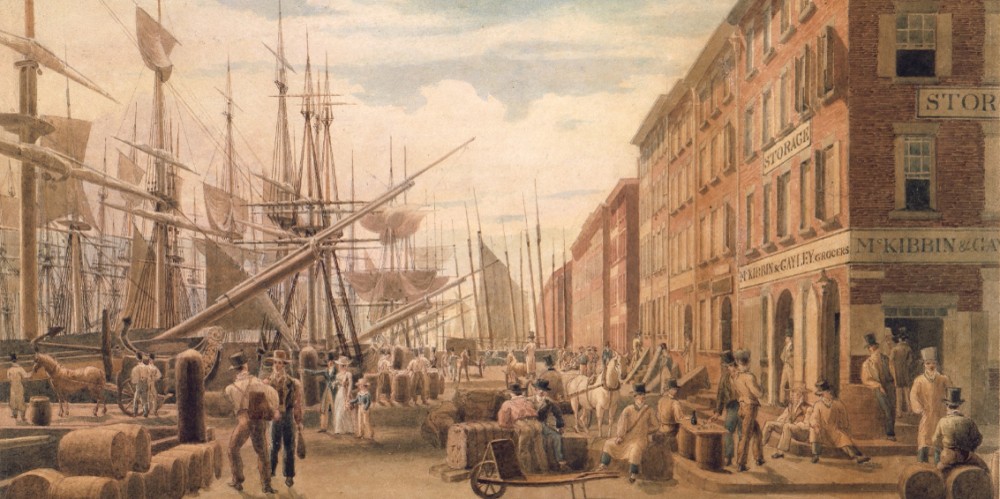
William James Bennett, “View of South Street, from Maiden Lane, New York City,” ca. 1827, via Metropolitan Museum of New York
In the early years of the nineteenth century, Americans’ endless commercial ambition—what one Baltimore paper in 1815 called an “almost universal ambition to get forward”—remade the nation. Between the Revolution and the Civil War, an old subsistence world died and a new more-commercial nation was born. Americans integrated the technologies of the Industrial Revolution into a new commercial economy. Steam power, the technology that moved steamboats and railroads, fueled the rise of American industry by powering mills and sparking new national transportation networks. A “market revolution” was busy remaking the nation.
The revolution reverberated across the country. More and more farmers grew crops for profit, not self-sufficiency. Vast factories and cities arose in the North. Enormous fortunes materialized. A new middle class ballooned. And as more men and women worked in the cash economy, they were freed from the bound dependence of servitude. But there were costs to this revolution. As northern textile factories boomed, the demand for southern cotton swelled and the institution of American slavery accelerated. Northern subsistence farmers became laborers bound to the whims of markets and bosses. The market revolution sparked not only explosive economic growth and new personal wealth but also devastating depressions—“panics”—and a growing lower class of property-less workers. Many Americans labored for low wages and became trapped in endless cycles of poverty. Some workers—often immigrant women—worked thirteen hours a day, six days a week. Others labored in slavery. Massive northern textile mills turned southern cotton into cheap cloth. And although northern states washed their hands of slavery, their factories fueled the demand for slave-grown southern cotton that ensured the profitability and continued existence of the American slave system. And so, as the economy advanced, the market revolution wrenched the United States in new directions as it became a nation of free labor and slavery, of wealth and inequality, and of endless promise and untold perils.
Candela Citations
- American Yawp. Located at: http://www.americanyawp.com/index.html. Project: American Yawp. License: CC BY-SA: Attribution-ShareAlike